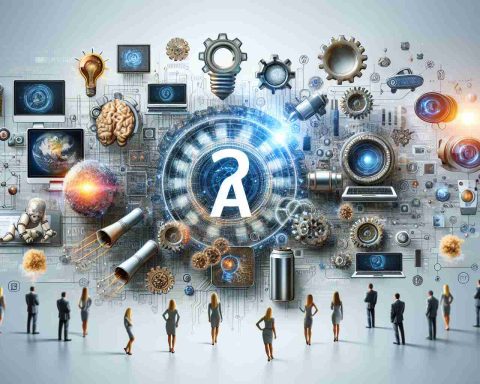Starting September 2024, David Game College in London is set to launch a pioneering GCSE study program that harnesses the power of artificial intelligence (AI) for personalized education. This innovative framework marks the first of its kind in the UK, allowing students to engage in learning entirely through an adaptive AI platform without traditional teachers.
Founded in 1974, David Game College has a reputation for guiding students towards prestigious universities. Their new initiative, named after a highly agile and independent species of hummingbird, aims to cultivate similar qualities in its students—particularly autonomy and adaptability.
The experimental program will accommodate twenty students aged between 15 and 17, who will attend classes daily while utilizing AI-driven learning platforms. Each student’s educational experience will be tailored to address their specific knowledge gaps, ensuring a focused and efficient learning journey. Human coaches will be available to provide guidance and support throughout the process.
With AI monitoring student progress in real time, the system promises an efficient educational model that can adjust to individual needs. This approach not only seeks to enhance learning effectiveness but also aims to optimize costs, making education more accessible.
As this groundbreaking initiative unfolds, it raises questions about the role of technology in the classroom and the future of traditional teaching methods. Overall, David Game College is poised to redefine educational paradigms in an increasingly digital world.
Revolutionizing Education: AI-Driven Learning at David Game College
As David Game College prepares to launch its revolutionary AI-powered GCSE study program in September 2024, the educational landscape is on the brink of transformation. Emphasizing personalized education through advanced technology, this initiative not only aims to enhance student learning but also raises critical questions about its implications for the future of education.
Key Questions Regarding AI in Education:
1. What are the potential impacts of AI on student learning outcomes?
AI-driven learning can personalize education by adapting content to meet individual student needs, potentially leading to improved comprehension and retention. However, empirical studies on long-term outcomes need to be conducted to validate this potential.
2. How will the role of educators change in an AI-centric classroom?
While traditional teachers may become less central, the role of human coaches is essential for mentoring and providing emotional support. Educators will likely transition to become facilitators of learning rather than the primary source of knowledge.
3. What measures are in place to ensure the ethical use of AI in education?
As AI systems collect data on student performance, privacy and data security become paramount. Implementing strict ethical guidelines and ensuring transparency in data usage will be crucial.
Key Challenges and Controversies:
While the integration of AI in education offers promising benefits, it is not without challenges:
– Equity in access to technology: There are concerns that students from lower socioeconomic backgrounds may lack access to necessary technology, thus widening the educational divide.
– Dependence on technology: There is a risk that students may become overly reliant on AI systems for learning, potentially diminishing their critical thinking and problem-solving skills.
– Data privacy concerns: Ensuring the confidentiality and security of student data is a significant challenge that schools must address comprehensively.
Advantages of an AI-Driven Learning Model:
1. Personalization: AI can tailor educational experiences to individual learning styles and paces, which can enhance motivation and engagement.
2. Scalability: Once developed, AI platforms can be scaled to reach a larger number of students across various locations, making quality education more accessible.
3. Real-time analytics: AI systems can provide immediate feedback, allowing students to identify areas for improvement swiftly and adjust their learning strategies accordingly.
Disadvantages of an AI-Driven Learning Model:
1. Loss of Human Interaction: While AI can provide personalized content, it cannot replace the emotional and social aspects of learning that come from interactions with human teachers and peers.
2. Potential for Bias: AI algorithms may inadvertently perpetuate bias if not designed with careful consideration, leading to unequal learning opportunities.
3. Resource Intensive: Developing and maintaining AI infrastructure can be costly, possibly diverting funds from other critical educational resources.
As David Game College embarks on this innovative journey, it sets a precedent for the future of education. By balancing the integration of AI with the essential human elements of teaching, the college may redefine how we approach learning in an increasingly digital age.
For further insights into the future of education and technological integration, visit David Game College.

















